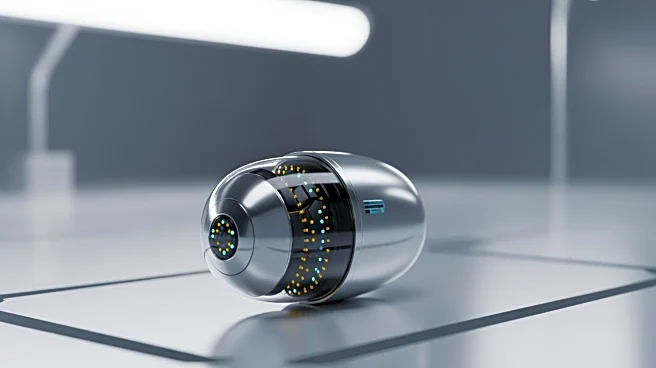What's Happening?
Researchers at the University of Macau, led by Professor Qingsong Xu, have developed a micro-robot inspired by the locomotion of the African spider, designed to navigate the human digestive tract. This robot, made from a rubber-like magnetic material,
aims to replace traditional endoscopy methods, which are invasive and uncomfortable for patients. The robot can be swallowed like a vitamin capsule and is propelled through the digestive system using an external magnetic field. It has been tested successfully in animal models, navigating complex environments within the digestive tract. The development is part of a broader effort to create minimally invasive diagnostic tools that reduce patient discomfort and improve diagnostic precision.
Why It's Important?
The introduction of this micro-robot could significantly impact the field of medical diagnostics by providing a less invasive alternative to endoscopy. Traditional endoscopic procedures often deter patients due to discomfort and the risk of complications, potentially delaying critical diagnoses. By offering a more patient-friendly option, this technology could lead to earlier detection of intestinal cancers and other gastrointestinal diseases, improving patient outcomes. Additionally, the robot's ability to navigate complex internal environments could enhance the precision of diagnostics, leading to more accurate and timely treatments.
What's Next?
The research team plans to conduct further experiments with live animals and eventually move to clinical trials in humans. If successful, this technology could be available for medical use within five years. The development also opens the door for future applications, such as targeted drug delivery and other minimally invasive medical interventions. The medical community is showing increasing interest in the potential of soft magnetic robots to revolutionize endoscopic procedures, suggesting a promising future for this technology.















